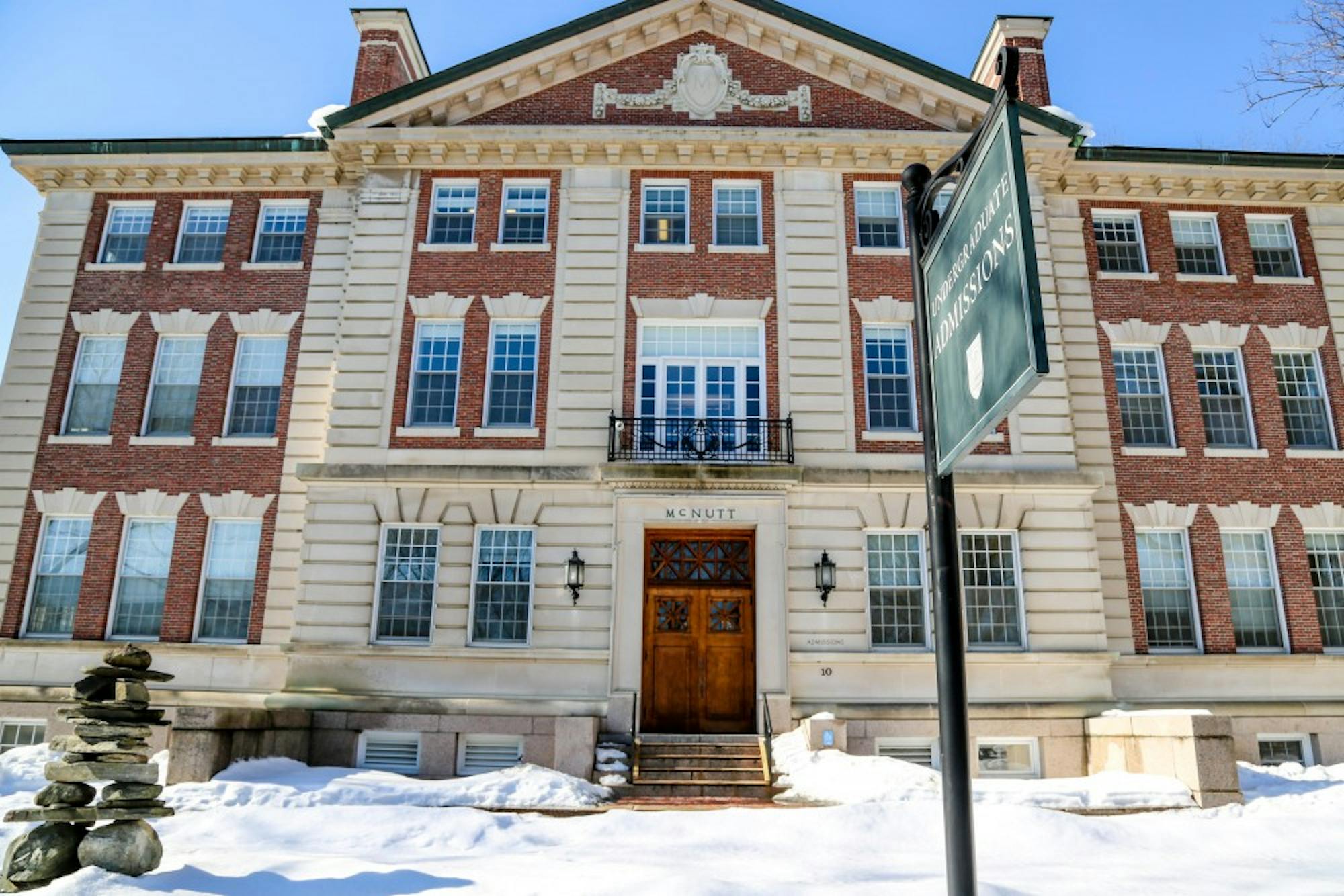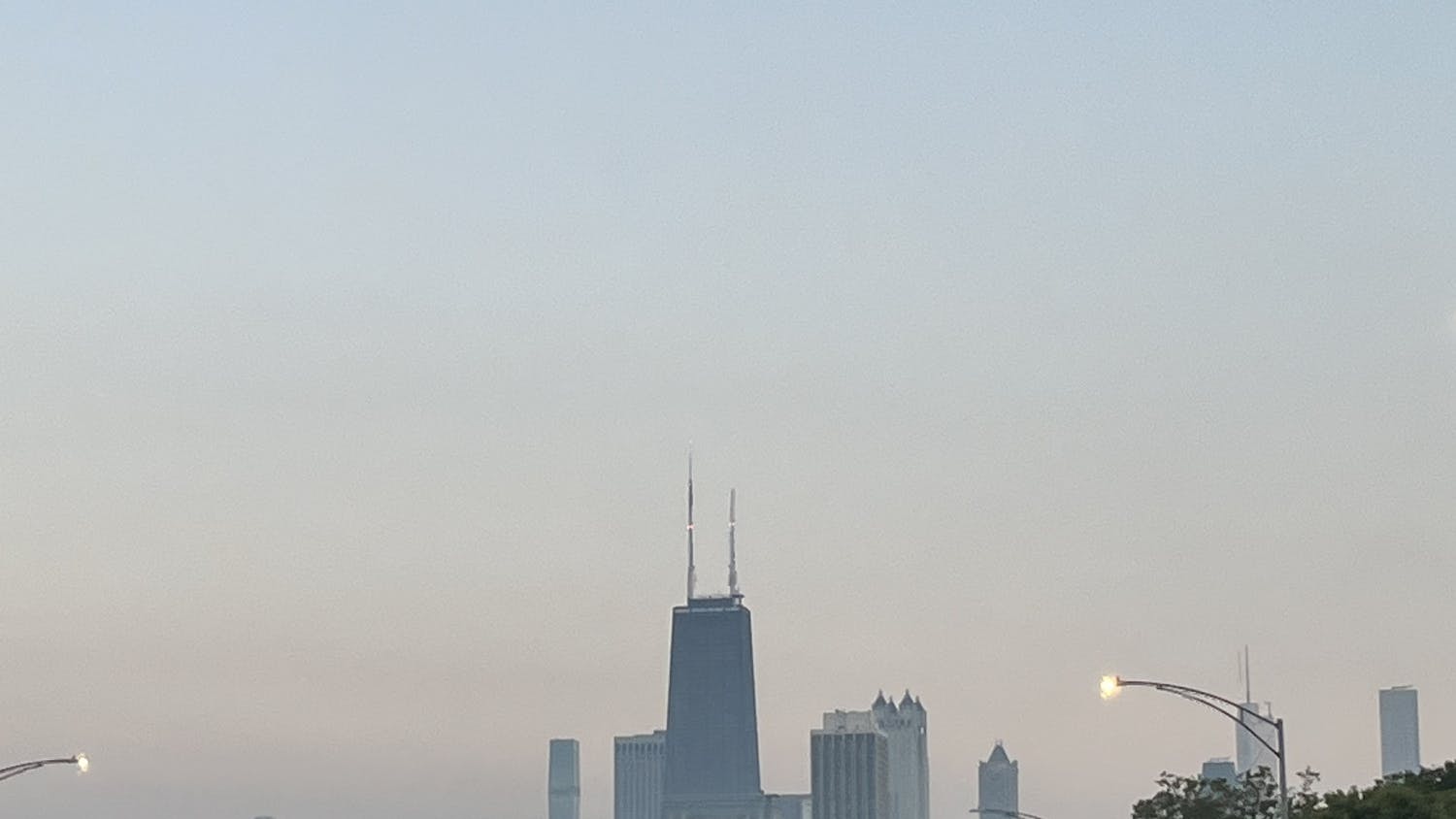On March 28, thousands of high school students will find out whether they have been admitted to Dartmouth. The College hit a record number of 23,641 undergraduate applications for the Class of 2023, marking a 7.3 percent increase from the 22,005 applications received for the Class of 2022.
Lee Coffin, vice provost for enrollment and dean of admissions and financial aid, said in an email statement that he believes applications increased “as a positive response to the refocused communications narrative and the expanded recruitment programming [the admissions office] introduced over the past year and a half.”
Coffin also credited the expansion of the admissions team’s online presence and effective “storytelling” as a reason for increased applications.
“The admissions website and social media platforms we introduced last winter have also been very effective, and our faculty-centered, on-campus programming has offered prospective students an opportunity to appreciate a Dartmouth classroom experience in a compelling, firsthand way,” he wrote.
According to a College press release, admissions officers visited nearly 1,500 high schools across the U.S. and in over 50 countries, while hosting more than 10,400 prospective students in Hanover for a campus tour, information session or open house with faculty.
“The fact that [applications] were up this year speaks to the admissions office doing some really heavy travel,” said Mimi Doe, co-founder of college admissions consulting firm Top Tier Admissions.
Doe added that she is pleased with the racial and socioeconomic diversity of Dartmouth’s applicant pool this year, noting the 25 students admitted through QuestBridge.
QuestBridge is an application-based program that matches high-achieving, low-income students with one of the program’s 40 college partners.
One third of the 574 students admitted to Dartmouth in the early decision round are students of color and 14 percent will be the first in their families to go to college. Twenty percent of early decision admitted students are legacies and 24 percent are recruited athletes. The early decision students will make up approximately 48 percent of the incoming Class of 2023.
Doe credited the increase in overall applications in part to a growing number of international students putting the College in their “line of vision.” She said that in the past, this has been hard because international students often are unable to visit the College.
Gabrielle Chan, Shivani Chelliah and Jayden Metcalfe, three Canadian students who applied to Dartmouth in the regular decision round, said Dartmouth’s supplementary essays were unique and provided them with an opportunity for reflection.
Chan and Chelliah said that time constraints and a desire to compare financial aid packages and offers from colleges in Canada were reasons they chose to apply in the regular decision round instead of early decision.
“I think the recruitment effort, the extensive travel effort of the admissions department ... paid off,” Doe said. “I think that it outweighed the bad press surrounding the [recent sexual harassment lawsuit].”
In November, seven students filed a class action against the College, alleging that Dartmouth failed to protect them from sexual assault by three professors in the College’s psychology and brain sciences department. Doe said that she has heard concerns from female prospective applicants related to the incident. While these concerns are recent, Doe said some students she works with have been hesitant to apply to the College for years before the lawsuit.
“I’ve had kids really reluctant to apply to Dartmouth since the Rolling Stone piece [“Confessions of an Ivy League Frat Boy”] came out [in 2012],” Doe said. “Before then, I had underrepresented minority kids, kids of color be reluctant about Dartmouth because it was too rural, because it was not welcoming to diverse students and I don’t see that as much anymore.”
She added that she now hears more concerns from parents who worry about the College’s reputation as a “party school.”
Bev Taylor, founder and chief executive officer of college admissions consulting firm Ivy Coach, said she recognizes the severity of the sexual assault allegations, but disagreed that such scandals will have a long-term effect on applications to the College and acceptances of offers.
“The public is aware how seriously Dartmouth is addressing these claims of sexual misconduct by the professors,” Taylor said.
Taylor cited Harvard University’s recent high-profile court case — where the school was being sued for allegedly discriminating against Asian-American applicants — to support her claims. She said that although Harvard’s early action deadline was two days after the conclusion of the Students for Fair Admissions v. Harvard trial, the university did not see a significant decline in application numbers.
Doe said she will be paying close attention to the number of students of color, first-generation students and legacies who are admitted in Dartmouth’s regular decision round.




